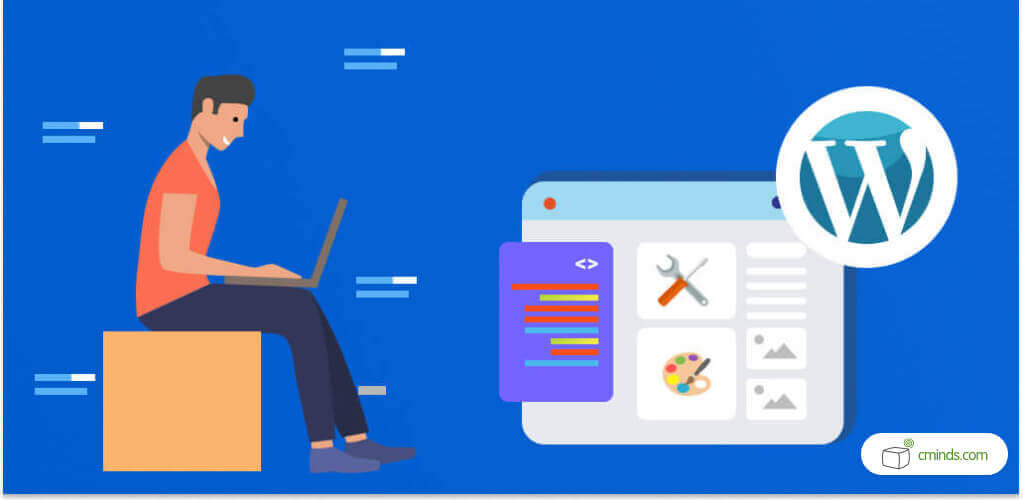With online business booming across the world, now could be the perfect time to move your business online.

The eCommerce sector presents exciting new opportunities no matter your industry and provides an excellent way to grow and get ahead of your competitors. Before you take the leap, however, there are some important factors you need to take into consideration.
We’ve talked before about what you need to know before starting an eCommerce business, but what about if you’re looking to move an existing business online? Here’s everything you need to consider.
December 2024 Offer – For a Limited Time Only:
Get WordPress Essential Security Tools for 20% off! Don’t miss out!
Advantages of eCommerce

With eCommerce sales set to hit $4.9 trillion in 2021, it’s well worth considering moving your store online. The benefits you could see include:
Increase in Customer Numbers
If you’re a purely local business, moving online enables you to widen your customer base, bringing those customers who were out of reach into your grasp – whether that’s a target market in a different location or those who are unable to visit a physical store.
Larger Market Share
Moving your business online opens up the possibility of moving into new markets, as you can make sales internationally. You might even find that there’s stronger demand for your products overseas.
Reduced Overheads
Moving into eCommerce can be a great idea if you’re looking to reduce your business costs. An online store negates the need to pay for physical premises and reduce the amount of staff you need to operate.
5 Things You Need to Consider Before Moving Your Business Online
However, like any major business decision, there are a number of factors that you need to consider carefully before you make any moves. Factors to think about include:
1. Your Preferred Platform
First of all, you need to spend time thinking about the platform you want to use to build your online store. There are two main options here: you can use tools that are specifically designed for building web stores or use a different CMS and add plugins that transform it into one.
Magento and Shopify remain two of the biggest platforms for building online stores, and it’s important to weigh up the pros and cons of each. On the other hand, content management systems like WordPress can be transformed into eCommerce stores with the use of plugins like WooCommerce or EasyDigitalDownloads.
One of the biggest factors feeding into this decision is your level of web development knowledge. If you have prior experience, or the time and willingness to learn, you can choose to manage and maintain your website on your own. If you’re new to web development, you may need to hire a professional web developer.
This will of course affect the cost of building and maintaining your website, which brings us on to point #2…
2. The Cost of Building and Maintaining Your Web Store

Though you may see a decrease in costs from reduced staffing needs and a decrease in rent payments, there are costs associated with running an online store that you need to consider.
From purchasing a domain to paying for hosting, there are a plethora of costs associated with creating and running a website.
However, not only is there the cost associated with designing and building your eCommerce store, once everything is up and running, there’s the yearly on-going cost of maintaining it to think about too. When deciding whether eCommerce is right for you, you need to make sure the costs are offset by the gains.
3. GDPR and Data Privacy

GDPR has been the phrase on everyone’s lips for a few years now, but what does it actually mean for your business?
GDPR stands for General Data Protection Regulation, and it’s the central piece of Europe’s digital privacy legislation. It’s a set of rules designed to give European citizens more control over their data privacy, and while you might think it’s only relevant for those in Europe the regulation has implications for business across the globe.
Privacy should be one of your top concerns when it comes to moving your business online, particularly if you’re asking customers to input sensitive personal data. To comply with regulations you need to handle this data “ fairly, lawfully, and in a transparent manner.”
You also need to ensure that you don’t use it outside of the parameters explicitly stated on your website as, in accordance with GDPR rules, “ organizations can be fined up to 4% of annual global turnover” for any breaches.
If you need plugins for your WordPress website, or extensions for your Magento store you can rest assured that products from CreativeMinds are compliant with GDPR rules, so no matter where you are in the world there’s no need to worry about data privacy regulations when you purchase from us.
4. Security Necessities

Privacy considerations are not the only thing you need to think about to keep yourself and your customers safe and secure.
From choosing a secure host to using real-time threat alerts to monitor any potential dangers, there are a number of security concerns that you need to take into account before you move your offline business into the online world.
WordPress websites are particularly vulnerable to hacks, but investing in solid security measures are essential no matter what platforms or tools you choose to use.
5. Your Marketing Plan
No online store is a success without a solid marketing plan to drive traffic and increase customer numbers.
As a business owner you’re no doubt familiar with the importance of excellent quality marketing, but the online world opens up new possibilities and avenues for you to go down.
From personalized recommendations targeting customers to selling through social media to maintaining your blog with relevant, engaging content – there’s a lot to think about!
As a starting point, it’s important to know the best content sharing platforms as well as how you can use personalized product recommendations – but there are plenty of resources online that can help you to formulate a marketing plan before you move your store online.


